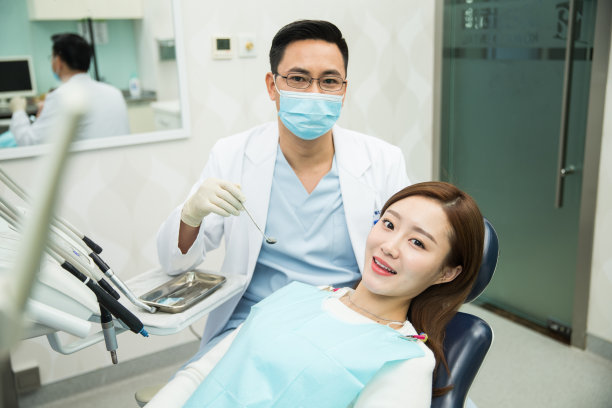Summary: Dental fillings are common procedures used to treat cavities and restore the structure of a tooth. However, optimal oral health before and after the filling appointment is crucial for a successful outcome. This article discusses essential precautions to take leading up to and following your dental filling procedure. Key areas of focus include proper communication with your dentist, the hygiene practices to adopt, dietary considerations, and ongoing oral care. Each of these aspects plays a significant role in ensuring effective treatment and maintaining your dental health.
1. Communicating with Your Dentist Effectively

Before your dental filling appointment, it is essential to have a thorough discussion with your dentist regarding your dental history. Being transparent about allergies, previous treatments, and current medications can help the dentist make informed decisions about anesthesia and other procedures. This open line of communication lays the foundation for a successful treatment experience.
In addition to discussing past dental experiences, inform your dentist about any symptoms you may be experiencing, such as pain or sensitivity. Sharing this information allows for better diagnosis and treatment planning, ensuring that the filling addresses not just the cavity but any underlying issues as well.
Lastly, don’t hesitate to ask any questions or express concerns you might have about the procedure. Understanding the steps involved can lessen anxiety and contribute to a more pleasant experience. An informed patient is better prepared and can be more proactive in their oral health care.
2. Maintaining Proper Oral Hygiene Routine
Before your appointment, it’s vital to maintain an excellent oral hygiene routine. Brushing and flossing twice daily can help prevent further decay and keep your mouth healthy before the procedure. This also reduces the risk of complications that may arise during or after the filling appointment.
Additionally, consider using an antibacterial mouthwash as part of your routine to further combat any bacteria that may exist in your mouth. This can create a healthier environment and ready your gums and teeth for the filling procedure.
Post-filling, its just as important to continue adhering to a strict oral hygiene regimen. Follow your dentist’s advice on how and when to brush or floss after the filling, as some methods may differ based on the type of filling used. Proper care will also promote healing and help the filling last longer.
3. Dietary Considerations Around Your Appointment
Your diet leading up to your dental appointment can significantly impact your oral health. Avoiding sugary foods and beverages will help in minimizing the risk of additional cavities. Instead, focus on a balanced diet rich in vitamins and minerals that promote oral health, such as fruits, vegetables, and dairy products.
On the day of your appointment, it’s advisable to have a light meal before your visit, especially if anesthesia will be used. Be sure to avoid eating anything sticky or that could get trapped in your teeth, as this can complicate your filling procedure.
After the filling is complete, your dentist may recommend avoiding hard or chewy foods for a day or two, especially if you received local anesthesia. Following these dietary recommendations will not only ensure comfort but also promote quicker healing, safeguarding your oral health following the procedure.
4. Implementing Post-Appointment Care Strategies
After getting a dental filling, routine check-ups become incredibly important. Attending follow-up appointments allows your dentist to monitor the filling for any signs of wear and tear. Regular check-ups are also beneficial for spotting potential issues early on, helping to maintain overall oral health.
Moreover, be mindful of any discomfort or unusual sensations in the filled tooth. If you experience pain, sensitivity, or discomfort that persists, dont hesitate to reach out to your dentist. Early intervention can prevent further complications and ensure the longevity of the filling.
In addition, maintain consistent oral hygiene practices post-appointment. Regular brushing, flossing, and using mouth rinse contribute to the maintenance of your filling and overall dental integrity. Good habits established after your filling will translate into better long-term oral health.
Summary:
In conclusion, proper precautions before and after your dental filling appointment can significantly impact your oral health outcomes. Critical focus areas include effective communication with your dentist, maintaining robust oral hygiene, making sensible dietary choices, and implementing diligent post-appointment care. Sticking to these guidelines will pave the way for a successful dental filling experience and contribute to enduring oral health.
This article is compiled by Vickong Dental and the content is for reference only.
Vickong Dental
Vickong Dental is a large medical group established in Hong Kong in 2008 by professors from well-known medical universities in Guangdong and Hong Kong, as well as medical doctors from key national '985' universities (including Master's supervisors and senior professors). The chain of branches brings together expert dentists with PhDs and Master's degrees from Hong Kong and Mainland China, committed to providing high-quality dental treatment.
"Vickong Dental Practices the University Motto of 'Healing and Serving Society,' with a Stable Operation for Sixteen Years. It Has Been honored with Hong Kong Enterprise Leaders's Choice,' and is a Global Trusted Implant Center for the Nobel Implant System. Recommended by Hong Kong Metro Broadcast and Guangdong Television, it Serves Customers from Over Thirty Countries and Regions, Gaining the Trust and Favor of Citizens from the Guangdong-Hong Kong-Macau Greater Bay Area and Surrounding Cities.

Thousands of customers' unanimous praise
The most recognized and highly recommended dental service by customers in the Guangdong-Hong Kong-Macau Greater Bay Area
We Ensure You Receive Detailed Care and Attention Here
Hong Kong standards, Shenzhen prices, Your Trusted English-speaking dentists

Vickong Dental Medical-Grade Instrument Disinfection Process
Vickong Dental Medical-Grade Instrument Disinfection Process

Vickong Dental Chain: A Warm and Comfortable Environment for Treatment






Appointment Hours

Q&A
Why choose Vickong Dental?
Vickong Dental practices the university motto 「Medicine to Benefit Society」, with each branch bringing together highly qualified dentists with doctoral and master’s degrees from Hong Kong and the Mainland, and has maintained seventeen years of steady operation。Recipient of 「2024 Hong Kong Enterprise Leaders Brand」, 「2025 Hong Kong Enterprise Leaders Brand」, a Nobel Biocare Global Trusted Implant Center, and a brand recommended by Metro Radio Hong Kong and Guangdong TV。
To date, we have served customers from more than thirty countries and regions,earning exceptionally high word-of-mouth recognition and trusted recommendations from residents across the Guangdong-Hong Kong-Macao Greater Bay Area and surrounding cities
We have eight major branches in Zhuhai、Shenzhen,and a consultation and service assurance center in Hong Kong,so you can book a free consultation at any time for any questions,which is very reassuring.
If I do not accept the quotation after the CT scan, will I be charged??
No! As long as the actual treatment has not started, you will not be charged any fees.
Will there be any additional charges during the treatment process?
No, there won’t be any additional charges. Before treatment begins, we will clearly explain the treatment plan and its corresponding fees. Only after the patient agrees and signs the consent form will we proceed with the dental service.
Can I pay in Hong Kong dollars?
Yes. Vickong Dental accepts payment in Hong Kong dollars. The amount will be converted based on the exchange rate of the day, and the applicable rate will be clearly communicated to you in advance.
Can I reschedule my appointment at any time?
Yes. Please contact us via **WeChat** or **WhatsApp** as early as possible, providing your original appointment time and details, along with your preferred new date and time slot for rescheduling.













